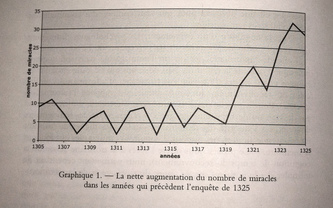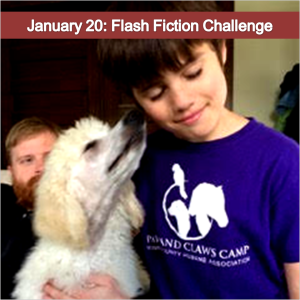| A friend tells me about an exercise he remembers fondly from a management course. You’ve probably come across it; it’s the one where you create a timeline of the ups and downs of your life. I’m feeling uneasy even before he asserts confidently that of course we’d all start life in the peaks, the troughs not arriving until we take on adult responsibilities. That’s not the shape of my timeline, however, and perhaps not yours either. |
On her blog this week, Charli Mills writes about of a different order of disconnection which makes her both mentally and physically shut down. Charli uses the term PTSD to make sense of her bewildering experience; when something similar takes hold of me, attachment theory is my preferred framework. It’s highly disorientating to experience myself, as totally abandoned, including (most disturbingly) by my adult self. Metaphorically, my fiction is an attempt to process and recover from the loss of my self.
My three-year bloggiversary has just slipped past while I was reminiscing about my first restaurant meal. The late reminder also got me thinking back to starting out as a blogger, and some of the things I thought initially I might explore. Long before I dared call myself a reviewer, I’d envisaged running a series on “the anxiously attached reader”, looking at how we might read differently if, in our heads, we’re never safe.
Reviewing Shalom Auslander’s marvellous tragicomic novel, Hope: a Tragedy, about a man discovering an elderly Anne Frank living in his attic, Naomi Alderman had this to say about being Jewish:
Jews watch Holocaust films differently: we're looking for advice. When should those schmucks have left the country? What do you do if you have to hide? How do you survive in a concentration camp? It constantly surprises my non-Jewish friends that I don't feel, as they do, that this event is in the past. That I wonder if they'd hide me if the economy went really bad and people started voting for Nick Griffin. My non-Jewish friends are shocked when they suggest that I could move to (cheap, artsy) Berlin and I say "No, can't. Too many ghosts of dead Jews." The thing might be over for you, but it's still alive for us.
For me, that’s strikingly similar to what it’s like when you’re prone to flashbacks or when you’re insecurely attached. Especially that last line.
The anxiously attached reader blog series never happened. I lost interest, confidence or didn’t have enough suitable books. But Charli’s post reminded me of a couple. You’ve probably read, or at least heard of, Audrey Niffenegger’s novel, The Time Traveler’s Wife, about a marriage disjointed by the husband’s uncontrollable tendency to move back and forth in time. I’m not generally enamoured of the supernatural, but this really worked for me because I identified so strongly with those time jumps, obviously not physically, but certainly psychologically. Another successful novel with a preposterous premise is Kazuo Ishiguru’s Never Let Me Go, about a school for children who have been cloned for the purpose of harvesting their body parts. I identified with the characters’ sense of their bodies not being their own.
I’d be interested to know if these novels affect you this way, and if you know of any others in a similar vein. But, before that, let’s return to Charli Mills, and her challenge to come up with a 99-word story about a boy and his dog. Having just posted a couple of dog-novel reviews, and confessed my indifference to the species, I expected to sit this one out. But, as often happens, a walk brought inspiration. The narrator isn’t me, but she does come pretty close.
| Collecting them from the waiting room, it’s clear his biggest problem is his mother. Anxious, overindulgent; but here, I make the rules. Once he sees the needle, he screams. Red-faced, the mother does her best. I try the talking puppet, the Donald Duck voice. His wailing ricochets off the walls. The whole department’s quaking now. Okay, I say. Bring her in! The mutt trails muddy pawprints across the floor. I hate to think where those feet have been. The kid goes quiet, even smiles. Not a murmur as I draw the blood. Maybe I’ll get an assistance dog myself. |























 RSS Feed
RSS Feed





















